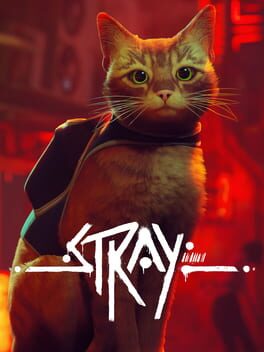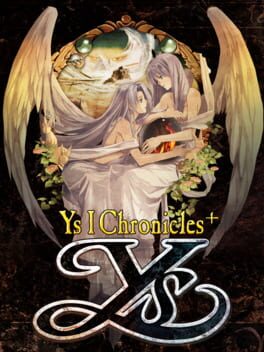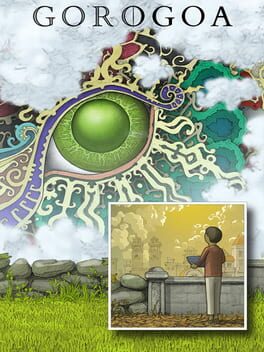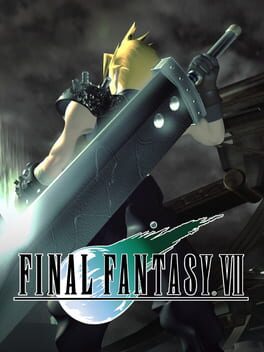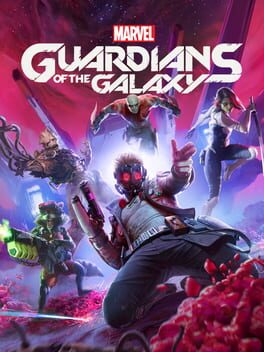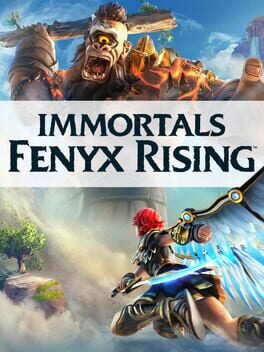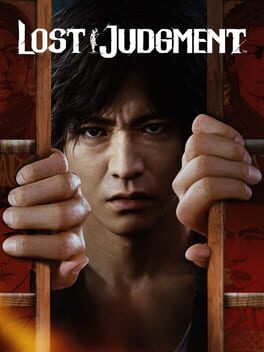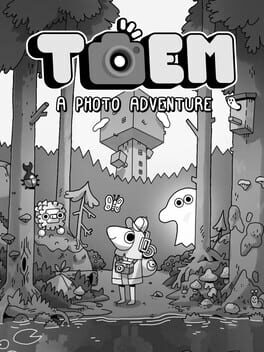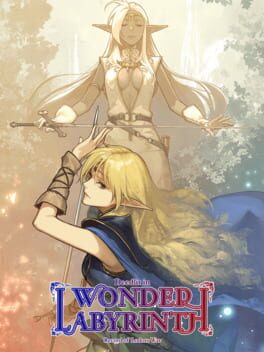whoshotvr
Technically I played this on the Switch, but it was via their SNES emulator.
After Tunic so completely satiated me, I needed something familiar and warm, and this, the best Zelda, called to me. It only takes a few hours at this point, and it had been a few years, so I ran through it.
Everything that really needs to be said about this game has been said over the past 30 years, and across those decades, I have played this game, or parts of it, at least that many times. The first time was on release, back when the internet was still the schoolyard (see also: The Legend of Zelda and The Adventure of Link). Its evolution of the completely obtuse NES entries into something still challenging yet easier to read was wonderful in its time, and I feel like it still stands the test. I never look back on this one and think "How in the fuck did we ever do this?!?" when I absolutely do with its earlier entries.
Sure, following this, the entries got cuter, liked to hold your hand more, until they shouted answers into your ear, leaving nothing to the imagination.
But here, in Link to the Past, there was still a little shred of the feeling that you discovered something no one had ever found before, all the while knowing that that thing you found would give you an edge against whatever horrors you had to face in the next hole in the ground.
This time through, I played it through completion, and I saw the ending for probably the sixth or seventh time in my life (I had seen the first six dungeons two dozen times at least) the sharpest memory of that Ganon fight was not my first time, but almost ten years later, an adult in 1998, getting the game from a Software Etc. and playing it through in a weekend on a girlfriend's tiny CRT, shocked at how much better I was at it then, only to return it for my precious $10, in order to grab something else off their used games shelf)).
I guess what I'm saying is that playing this game is history, is memory, is not actually playing this game, but desperately grasping at the few shreds of that history that remain, those people I experienced it with, or near. Where are they now? Are they even still alive?
I'll probably play Soul Blazer next, because my heart aches, and no one did melancholy like Quintet in the 90s.
After Tunic so completely satiated me, I needed something familiar and warm, and this, the best Zelda, called to me. It only takes a few hours at this point, and it had been a few years, so I ran through it.
Everything that really needs to be said about this game has been said over the past 30 years, and across those decades, I have played this game, or parts of it, at least that many times. The first time was on release, back when the internet was still the schoolyard (see also: The Legend of Zelda and The Adventure of Link). Its evolution of the completely obtuse NES entries into something still challenging yet easier to read was wonderful in its time, and I feel like it still stands the test. I never look back on this one and think "How in the fuck did we ever do this?!?" when I absolutely do with its earlier entries.
Sure, following this, the entries got cuter, liked to hold your hand more, until they shouted answers into your ear, leaving nothing to the imagination.
But here, in Link to the Past, there was still a little shred of the feeling that you discovered something no one had ever found before, all the while knowing that that thing you found would give you an edge against whatever horrors you had to face in the next hole in the ground.
This time through, I played it through completion, and I saw the ending for probably the sixth or seventh time in my life (I had seen the first six dungeons two dozen times at least) the sharpest memory of that Ganon fight was not my first time, but almost ten years later, an adult in 1998, getting the game from a Software Etc. and playing it through in a weekend on a girlfriend's tiny CRT, shocked at how much better I was at it then, only to return it for my precious $10, in order to grab something else off their used games shelf)).
I guess what I'm saying is that playing this game is history, is memory, is not actually playing this game, but desperately grasping at the few shreds of that history that remain, those people I experienced it with, or near. Where are they now? Are they even still alive?
I'll probably play Soul Blazer next, because my heart aches, and no one did melancholy like Quintet in the 90s.
2022
About as perfect as a game like this can be. I had some minor frustrations (there was one thing that locked away half the game that I didn't find because I trusted a sign that said "SEALED FOREVER" and didn't pay attention (Rule #1: PAY ATTENTION)), but they were all ME problems.
I did just about everything, found all the stuff, got both endings, and some of the late game puzzles were about as satisfying as anything I've ever put together (Rule #2: Don't be afraid to look for hints, and don't be afraid to give up on puzzles completely because they don't interest you (like reading, for me, personally)). In many ways, this is an evolution of Fez, being one thing, then actually being another, then actually actually changing how you interpret the world around you, and learning those new interpretations just felt so goddamned good.
Its ultimate ending is bittersweet, because, like Fez and The Witness, and Shutter Island and Jacob's Ladder, I only get to experience it one way once. Every other time, I'll know. (Rule #3: Sometimes you just have to let something go)
I did just about everything, found all the stuff, got both endings, and some of the late game puzzles were about as satisfying as anything I've ever put together (Rule #2: Don't be afraid to look for hints, and don't be afraid to give up on puzzles completely because they don't interest you (like reading, for me, personally)). In many ways, this is an evolution of Fez, being one thing, then actually being another, then actually actually changing how you interpret the world around you, and learning those new interpretations just felt so goddamned good.
Its ultimate ending is bittersweet, because, like Fez and The Witness, and Shutter Island and Jacob's Ladder, I only get to experience it one way once. Every other time, I'll know. (Rule #3: Sometimes you just have to let something go)
2022
In lots of ways, Stray feels like an old, PSX or PS2 era adventure game. There's a lot of talking and exploring, some fetching and trading and distracting, and some clumsy action sequences, and if that's all there were, then Stray wouldn't matter at all.
But thankfully it's set in a gorgeous, built out world, one that tells its own story as much as the residents do. It's (mostly) fun to play, motion is fluid and responsive, and nothing is very obtuse.
I'm not quite sure it entirely earned its ending and I was left wanting more from its final scene, just a little bit more.
But that said, it took me about 6 hours total and I did everything there seemed to be to do. Apparently I didn't get all the badges, which you seem to get for completing sets of tasks, so I am now wondering what I missed.
While I am sad they didn't stick with their original idea of setting this within the Kowloon Walled City (that's this team, right?), I get why they made some changes. Their story can be free of any political connection, they can build out their own environments and plot, and they can still evoke the feeling of that city and SE Asian slums in general without it needing to be real.
But thankfully it's set in a gorgeous, built out world, one that tells its own story as much as the residents do. It's (mostly) fun to play, motion is fluid and responsive, and nothing is very obtuse.
I'm not quite sure it entirely earned its ending and I was left wanting more from its final scene, just a little bit more.
But that said, it took me about 6 hours total and I did everything there seemed to be to do. Apparently I didn't get all the badges, which you seem to get for completing sets of tasks, so I am now wondering what I missed.
While I am sad they didn't stick with their original idea of setting this within the Kowloon Walled City (that's this team, right?), I get why they made some changes. Their story can be free of any political connection, they can build out their own environments and plot, and they can still evoke the feeling of that city and SE Asian slums in general without it needing to be real.
2013
This is my third or fourth time through this game, second time through on this specific edition. I needed a short palate cleanser after the two FF 7 versions and before Tunic comes out on a platform I could play it on.
I grew up in the obtuse era of video games, so I'm maybe a little more okay with how little Ys 1 tells you. There's a point about halfway through where a boss is made intentionally near-impossible (although if you are stubborn, you could probably brute force it), and it's done this way to make sure you are ready for the next chunk of game. But in order to be ready for that chunk, you need to have performed a lot of other tasks, tasks which are discovered only by talking to everyone and exploring every corner.
This was how video games used to push their technology to the limits: fill out the data with world and people and monsters, then have the player explore every single corner of it. That's what prevents Ys 1 from only being 3 hours long.
I've played through some of the translated NES version via emulation, and this edition is very clearly a labor of love. It's virtually identical, but with new graphics, music, and translation, and it's a really beautiful, engaging package. I am kind of sad that the bump fighting disappeared after these two, because I'm a big fan. I miss that time when Zelda clones all tried to do something different and new, when we were still figuring out all the different ways video games could be played and still be fun.
The story that isn't there is more interesting to me than the story that is, and I love how it continues into Ys 2.
I grew up in the obtuse era of video games, so I'm maybe a little more okay with how little Ys 1 tells you. There's a point about halfway through where a boss is made intentionally near-impossible (although if you are stubborn, you could probably brute force it), and it's done this way to make sure you are ready for the next chunk of game. But in order to be ready for that chunk, you need to have performed a lot of other tasks, tasks which are discovered only by talking to everyone and exploring every corner.
This was how video games used to push their technology to the limits: fill out the data with world and people and monsters, then have the player explore every single corner of it. That's what prevents Ys 1 from only being 3 hours long.
I've played through some of the translated NES version via emulation, and this edition is very clearly a labor of love. It's virtually identical, but with new graphics, music, and translation, and it's a really beautiful, engaging package. I am kind of sad that the bump fighting disappeared after these two, because I'm a big fan. I miss that time when Zelda clones all tried to do something different and new, when we were still figuring out all the different ways video games could be played and still be fun.
The story that isn't there is more interesting to me than the story that is, and I love how it continues into Ys 2.
2017
Absolutely gorgeous, tightly scripted 90 minute (if that) puzzler. All hand drawn and smoothly animated, this game was clearly made with love and perseverance, and it shows.
The puzzles were all very clever, the few timing based ones give big windows to move the pieces around in, and there was never a point where I felt like my failure made me backtrack or undo/redo anything. The whole experience was very thoughtful and respectful of my time and energy.
The story, in as much as there is one, was lovely as well, about life and aging and memory and regret and, really, anything you think it is about.
Just lovely.
The puzzles were all very clever, the few timing based ones give big windows to move the pieces around in, and there was never a point where I felt like my failure made me backtrack or undo/redo anything. The whole experience was very thoughtful and respectful of my time and energy.
The story, in as much as there is one, was lovely as well, about life and aging and memory and regret and, really, anything you think it is about.
Just lovely.
2012
After playing the aggressively mediocre FF 7 Remake, I decided to go back to the original to see how it played today.
There is no way to really speak to the impact this game had in its moment (although when you realize that it's the first Square game to get a direct sequel and a movie and side stories full console generations later...). Somehow, I got a VHS tape in the mail with trailers for this game, and they were 100% made up of cut-scenes. Clearly it did the trick, because I got a non-Nintendo console for the first time. I had history with the series, having played the first one back in 1990, followed by every American release (2, 3, Mystic Quest, Legend 1-3, Adventure), and at the time, 7 was about as good as games got.
25 years later, it's clunky, sure, but it still tells a solid, complex story and has a fun set of systems at its core. It's also notable because it's from the era when Square was constantly pushing envelopes, experimenting with its forms (for better and worse) to come up with different, bizarre systems to play with.
I miss this time of innovation, and I don't know that we'll see it again. A time when a tried and true battle system (ATB) can be put into an innovative world with fun/awful minigames that really shouldn't be here at all, but we're kind of glad they are. That solid ATB system carries the game forward, but the added complexities that were carefully built to help the player stay engaged and always feel growth are new and, in many cases, unique to this entry.
And that's okay, really. With endless space available on modern computers and consoles, we can have endlessly enormous games, and companies need to (and have in some cases) adapt and grow. Square just hasn't yet. I hope yet, anyway.
I do want to note that I played through this time taking full advantage of the quality of life enhancements that come with the Switch port. I turned off battles when I just wanted to explore vague pathways, sped up 85% of the entire game, and used the super power button when I felt like something unfair had happened (and honestly, for the entirety of the third disc/part because I was just over it by then). Those enhancements really helped this time around, because I no longer have the time and patience I did when I was 17.
There is no way to really speak to the impact this game had in its moment (although when you realize that it's the first Square game to get a direct sequel and a movie and side stories full console generations later...). Somehow, I got a VHS tape in the mail with trailers for this game, and they were 100% made up of cut-scenes. Clearly it did the trick, because I got a non-Nintendo console for the first time. I had history with the series, having played the first one back in 1990, followed by every American release (2, 3, Mystic Quest, Legend 1-3, Adventure), and at the time, 7 was about as good as games got.
25 years later, it's clunky, sure, but it still tells a solid, complex story and has a fun set of systems at its core. It's also notable because it's from the era when Square was constantly pushing envelopes, experimenting with its forms (for better and worse) to come up with different, bizarre systems to play with.
I miss this time of innovation, and I don't know that we'll see it again. A time when a tried and true battle system (ATB) can be put into an innovative world with fun/awful minigames that really shouldn't be here at all, but we're kind of glad they are. That solid ATB system carries the game forward, but the added complexities that were carefully built to help the player stay engaged and always feel growth are new and, in many cases, unique to this entry.
And that's okay, really. With endless space available on modern computers and consoles, we can have endlessly enormous games, and companies need to (and have in some cases) adapt and grow. Square just hasn't yet. I hope yet, anyway.
I do want to note that I played through this time taking full advantage of the quality of life enhancements that come with the Switch port. I turned off battles when I just wanted to explore vague pathways, sped up 85% of the entire game, and used the super power button when I felt like something unfair had happened (and honestly, for the entirety of the third disc/part because I was just over it by then). Those enhancements really helped this time around, because I no longer have the time and patience I did when I was 17.
This scene perfectly sums up my feelings about this game:
https://youtu.be/WgLr6qlpec4
You can never go home, but I guess you can shop there. You can never actually go back to FF7, but it'll still give you an avenue in which to spend your money.
The good: There are a lot of great design choices here. Visually, it's a mostly stunning game that takes all the great visual concepts from the original and hews very closely to them. The weapon leveling system is also quite good, even though I never felt like I had enough of a window to make a mistake and need to respec my stuff.
When the game sticks to the plot and area details of the original game, it's a lot of fun. That's about all I can say about what is good here.
Much of this game is a waste of time. Side stories are pale copies of Yakuza side stories, where you go to a place and fight a thing for someone, but all the characters are so devoid of charm and the objects you get as a reward are generally pointless.
The detours are frustratingly thin, like the one time you go topside. I was really looking forward to that conceptually, but it was just a drab suburban town, where you don't even get to go in and meet people.
And then there's the final five hours of boss rushes and plot dump, and it did nothing for me. The music would swell and I'd feel nice, but then I'd have to grapple with the frustrating battle system that was trying to do ATB, but in real time, where I can get juggled and trapped and then killed, but I can't do the same to my opponent, where enemies can just drive further up the road and stay away from me while I slowly wait for my bar to fill up so I can use my one long distance attack.
The whole thing took me 42 hours. That's 5 times longer than the original Midgar section took me back in 1997 and 10 hours longer than the entire original game took me. And for what?
And you know what? In five years I'll spend $15 on the sequel and I'll spend another 42 hours on it and I'll be just as incensed (more so, likely, given how the ending here implied major shifts in the narrative), because I guess Square is the only company that can still do this to me, me a goddamned adult man.
https://youtu.be/WgLr6qlpec4
You can never go home, but I guess you can shop there. You can never actually go back to FF7, but it'll still give you an avenue in which to spend your money.
The good: There are a lot of great design choices here. Visually, it's a mostly stunning game that takes all the great visual concepts from the original and hews very closely to them. The weapon leveling system is also quite good, even though I never felt like I had enough of a window to make a mistake and need to respec my stuff.
When the game sticks to the plot and area details of the original game, it's a lot of fun. That's about all I can say about what is good here.
Much of this game is a waste of time. Side stories are pale copies of Yakuza side stories, where you go to a place and fight a thing for someone, but all the characters are so devoid of charm and the objects you get as a reward are generally pointless.
The detours are frustratingly thin, like the one time you go topside. I was really looking forward to that conceptually, but it was just a drab suburban town, where you don't even get to go in and meet people.
And then there's the final five hours of boss rushes and plot dump, and it did nothing for me. The music would swell and I'd feel nice, but then I'd have to grapple with the frustrating battle system that was trying to do ATB, but in real time, where I can get juggled and trapped and then killed, but I can't do the same to my opponent, where enemies can just drive further up the road and stay away from me while I slowly wait for my bar to fill up so I can use my one long distance attack.
The whole thing took me 42 hours. That's 5 times longer than the original Midgar section took me back in 1997 and 10 hours longer than the entire original game took me. And for what?
And you know what? In five years I'll spend $15 on the sequel and I'll spend another 42 hours on it and I'll be just as incensed (more so, likely, given how the ending here implied major shifts in the narrative), because I guess Square is the only company that can still do this to me, me a goddamned adult man.
Holy flarking scut, what a fucking game. I waffled on the ultimate score, because let's be honest, the actual gameplay isn't great. It's like every other 3rd person shooter you've ever played. It's Control all over again, where you go into an arena and you shoot things and use your special powers to win. Sometimes you die and it feels really unfair, sometimes there's a boss and it feels half baked. It's a PS2 era 3rd person shooter.
But the clothes, holy shit, the clothes. This is a 3 star game in 5 star clothes, and I didn't want it to ever end. In fact, in the first fake out, when I thought we were heading into the climax, when it turned out we weren't and we sang the Kartahtian war song together in the Milano, I had a huge grin just plastered across my flarking face the whole time.
What makes this game five fucking stars is the writing and the dialog and the characterization. It's all just stellar. Like, in ways I didn't expect it to be, stellar. There is constant dialog and conversation going on around you all the time, and it's all interesting and fun to engage in. You're prompted to contribute to conversations often, and those decisions you make actually build to stuff. But! Here's the important part:
The decisions you make, no matter what they are, never feel like they will actually hurt your progress in the game. I never once felt the need to look up my choices to make sure I picked the right one. In the tutorial, they tell you that your choices matter, but not that much. Sometimes, a choice you made hours before will come back and eliminate a barrier that you would otherwise have to cross yourself, but that's it.
And that freedom is so wonderful. This game was just a fucking joy from start to finish, and I never got tired of it, even as I got frustrated by the little things, like how I'd die without knowing I'd been shot at a bunch, or how I failed the first quicktime event because the game never showed me how those work in the first place.
I just loved being in this game, in the art, with these characters, just existing surrounded by this endlessly innovative, clever conversation. I don't want any more, because I don't think you could pull this off again, but I am SO happy this one is here.
But the clothes, holy shit, the clothes. This is a 3 star game in 5 star clothes, and I didn't want it to ever end. In fact, in the first fake out, when I thought we were heading into the climax, when it turned out we weren't and we sang the Kartahtian war song together in the Milano, I had a huge grin just plastered across my flarking face the whole time.
What makes this game five fucking stars is the writing and the dialog and the characterization. It's all just stellar. Like, in ways I didn't expect it to be, stellar. There is constant dialog and conversation going on around you all the time, and it's all interesting and fun to engage in. You're prompted to contribute to conversations often, and those decisions you make actually build to stuff. But! Here's the important part:
The decisions you make, no matter what they are, never feel like they will actually hurt your progress in the game. I never once felt the need to look up my choices to make sure I picked the right one. In the tutorial, they tell you that your choices matter, but not that much. Sometimes, a choice you made hours before will come back and eliminate a barrier that you would otherwise have to cross yourself, but that's it.
And that freedom is so wonderful. This game was just a fucking joy from start to finish, and I never got tired of it, even as I got frustrated by the little things, like how I'd die without knowing I'd been shot at a bunch, or how I failed the first quicktime event because the game never showed me how those work in the first place.
I just loved being in this game, in the art, with these characters, just existing surrounded by this endlessly innovative, clever conversation. I don't want any more, because I don't think you could pull this off again, but I am SO happy this one is here.
2018
Apparently I never logged this. This was my second playthrough, it's a masterpiece, etc, etc.
When I was a kid, I was always so frustrated with non-Mario platformers (Sonic specifically) that couldn't get platforming right, because it's already been done perfectly! Just do that again! That's how I feel about post-God of War 3rd person action games. God of War did it already! it figured out the crunch! Just do that again!
This iteration also finally feels complete and full. I played the first two on the PS2 back when they were released, and while they were fun action games with some awesome scope, they felt like they were made by 20 year olds. Ultraviolence, as graphic as possible, boobs, sex, drinking. Even at 25 they felt juvenile to me.
This feels like those guys grew up, started families, had kids, and realized what being an adult actually is like, then made that game. The story is mature, it's steeped with regret, Kratos is trying to break the cycle of violence, but suddenly has to take care of a kid and doesn't know what he's doing or how to be a better father than his own father was.
There are so many amazing narrative moments in the game, beyond the big setpieces. The way it conveys emotions, how it shows instead of tells, how it makes you live with the choices of the character, a character you control but don't make decisions for, it's a narrative, mature masterpiece.
When I was a kid, I was always so frustrated with non-Mario platformers (Sonic specifically) that couldn't get platforming right, because it's already been done perfectly! Just do that again! That's how I feel about post-God of War 3rd person action games. God of War did it already! it figured out the crunch! Just do that again!
This iteration also finally feels complete and full. I played the first two on the PS2 back when they were released, and while they were fun action games with some awesome scope, they felt like they were made by 20 year olds. Ultraviolence, as graphic as possible, boobs, sex, drinking. Even at 25 they felt juvenile to me.
This feels like those guys grew up, started families, had kids, and realized what being an adult actually is like, then made that game. The story is mature, it's steeped with regret, Kratos is trying to break the cycle of violence, but suddenly has to take care of a kid and doesn't know what he's doing or how to be a better father than his own father was.
There are so many amazing narrative moments in the game, beyond the big setpieces. The way it conveys emotions, how it shows instead of tells, how it makes you live with the choices of the character, a character you control but don't make decisions for, it's a narrative, mature masterpiece.
This took all the fun exploration and puzzle solving of Breath of the Wild and added in Ubisoft's anxiety around the player not knowing what to do next. At any point, you can scan the area around you to find stuff to do, which does remove that urge to climb the next hill just to see what's there.
That said, whoever built this thing was able to protect themselves from the Ubisoft machine enough to allow the puzzles to exist without hints. There were some actual stumpers in there, and I had that really fun feeling of discovering a solution, the "a-ha" moment, more than a few times.
The plot and the writing were really fun, there was a lot of stuff to do with a lot of variety, and the conclusion was really satisfying. All in all, I really enjoyed my time with this game.
I'm in the middle of the Eastern Realm DLC, and it's more of the same with new clothes on. I'm enjoying it, but I may have started it too soon after finishing the main game, so I'm kind of tired of it at this point.
That said, whoever built this thing was able to protect themselves from the Ubisoft machine enough to allow the puzzles to exist without hints. There were some actual stumpers in there, and I had that really fun feeling of discovering a solution, the "a-ha" moment, more than a few times.
The plot and the writing were really fun, there was a lot of stuff to do with a lot of variety, and the conclusion was really satisfying. All in all, I really enjoyed my time with this game.
I'm in the middle of the Eastern Realm DLC, and it's more of the same with new clothes on. I'm enjoying it, but I may have started it too soon after finishing the main game, so I'm kind of tired of it at this point.
2019
Technically didn't finish The Foundation, but did the main game and the other DLC. I was in the middle of The Foundation when I ended up in a room that stayed sealed up after I beat all the creatures and realized that, when faced with having to restart the game and redo the segment just to make progress, I didn't really care about The Foundation, where it was going, or how it would resolve. So I put it down and moved on.
Control is a lot like that for much of its game time. It's a decent arena shooter in an interesting building, but it doesn't live up to its promises for 2/3 of its game. It does capture the weird, eerie horror of liminal space, nailing that feeling you get when you're in an office or high school after hours.
The plot it tells, about a woman in a weird building looking for her brother, is fine, nothing special, but the stories that get told in the background, through documents, notes, audio recordings, and film reels is really great. THAT is where the story really is: in the history of the Oldest House.
There does come a point in the game, at the ashtray, where it finally lives up to its promises, and it rides that high all the way through the conclusion.
It's a soft recommendation from me, but it does kind of blow my mind that, in the modern era where so much about gameplay has been innovated and iterated to near perfection, that we still get PS3 throwbacks like this, where you have to stand still for 2 minutes to hear a tape recording, or get punished for dying by losing resources you won't understand or be able to use for another three hours.
Control is a lot like that for much of its game time. It's a decent arena shooter in an interesting building, but it doesn't live up to its promises for 2/3 of its game. It does capture the weird, eerie horror of liminal space, nailing that feeling you get when you're in an office or high school after hours.
The plot it tells, about a woman in a weird building looking for her brother, is fine, nothing special, but the stories that get told in the background, through documents, notes, audio recordings, and film reels is really great. THAT is where the story really is: in the history of the Oldest House.
There does come a point in the game, at the ashtray, where it finally lives up to its promises, and it rides that high all the way through the conclusion.
It's a soft recommendation from me, but it does kind of blow my mind that, in the modern era where so much about gameplay has been innovated and iterated to near perfection, that we still get PS3 throwbacks like this, where you have to stand still for 2 minutes to hear a tape recording, or get punished for dying by losing resources you won't understand or be able to use for another three hours.
2021
I ended up with about 81% complete (I question it because the final screen said I completed 3/10 school stories, but I finished that entire thread).
Lost Judgement is the least good RGG game. All the edges have been sanded down so smooth that there isn't a lot of actual game in here. There are stealth, following suspects, investigating, and climbing mechanics, all crucial to the plot, but they are barely utilized. Most of the school story mini games were half baked, fun for a minute, but quickly tiring, with built in methods to just win. Robot wars, motorcycle races, and boxing were all way too long, and photography, the most enjoyable one, was way too short.
The fighting isn't crunchy like previous entries, I never really felt like I was in full control of Yagami, in part because almost all the fights were melee against groups, like Kiwami 2 and Yakuza 6.
There was very little one on one, so most of the fights really were just button mashing affairs, even on the highest difficulty. Because of this, there was no time to really refine fighting, so the first few boss fights were really hard because I didn't know how to fight just one guy.
There's also a Master System emulator and boy are those games bad. Playing Alex Kidd, it's a fucking miracle we ever got to Mario. There's a rewind button, but even with that, the game is impossible. What a turd of a system.
The story was very good, however. Nice and twisty and grimy, a solid crime story, with a solid conclusion, and a plot where you follow the "all the way to the top".
This will probably be the last Yakuza/RGG game I play in this style. I've played all 10 of them (Yakuza 0 - 6, Judgement, Lost Judgement, Fist of the North Star) at this point, and I think it's just done. I don't think there's anything else to do here, and that's okay! They did 10 of these things!
After another 4 - 8 months (about how long I take to recharge between entries), I'll be ready to do one more and play Like a Dragon. I hear that the shift in styles reinvigorates the series.
Lost Judgement is the least good RGG game. All the edges have been sanded down so smooth that there isn't a lot of actual game in here. There are stealth, following suspects, investigating, and climbing mechanics, all crucial to the plot, but they are barely utilized. Most of the school story mini games were half baked, fun for a minute, but quickly tiring, with built in methods to just win. Robot wars, motorcycle races, and boxing were all way too long, and photography, the most enjoyable one, was way too short.
The fighting isn't crunchy like previous entries, I never really felt like I was in full control of Yagami, in part because almost all the fights were melee against groups, like Kiwami 2 and Yakuza 6.
There was very little one on one, so most of the fights really were just button mashing affairs, even on the highest difficulty. Because of this, there was no time to really refine fighting, so the first few boss fights were really hard because I didn't know how to fight just one guy.
There's also a Master System emulator and boy are those games bad. Playing Alex Kidd, it's a fucking miracle we ever got to Mario. There's a rewind button, but even with that, the game is impossible. What a turd of a system.
The story was very good, however. Nice and twisty and grimy, a solid crime story, with a solid conclusion, and a plot where you follow the "all the way to the top".
This will probably be the last Yakuza/RGG game I play in this style. I've played all 10 of them (Yakuza 0 - 6, Judgement, Lost Judgement, Fist of the North Star) at this point, and I think it's just done. I don't think there's anything else to do here, and that's okay! They did 10 of these things!
After another 4 - 8 months (about how long I take to recharge between entries), I'll be ready to do one more and play Like a Dragon. I hear that the shift in styles reinvigorates the series.
2021
Okayest Metroid ever. The highs are super high and the lows are super low. Lots of great streamlining in the gameplay, making Samus move smoother than ever.
But, and there's a big but, the fucking EMMIs are just the worst. Each encounter is really irritating, as it's trial and error. There's no actual sneaking or feeling hunted, you just go into a room, die, then go into the room and die again. Eventually, you know the route and you don't die. REAL bad.
It is true what they say: you can't go home again. This ain't your daddy's (my) Metroid.
But, and there's a big but, the fucking EMMIs are just the worst. Each encounter is really irritating, as it's trial and error. There's no actual sneaking or feeling hunted, you just go into a room, die, then go into the room and die again. Eventually, you know the route and you don't die. REAL bad.
It is true what they say: you can't go home again. This ain't your daddy's (my) Metroid.
2021
What a lovely, lovely little game. It's a simple puzzle game about taking pictures and helping people on your way to see the Toem, a journey your grandparent underwent when they were young and now it's your turn.
I did everything in the game in about 4 hours, but I don't really know why. The last few things were kind of a big PITA and they added nothing at all to the game, so I'd say this is a thing that is best played to the end rather than to completion. Play as much as you want, do the tasks you want to do or find along the way to get to the next town, and just enjoy being in it.
I did everything in the game in about 4 hours, but I don't really know why. The last few things were kind of a big PITA and they added nothing at all to the game, so I'd say this is a thing that is best played to the end rather than to completion. Play as much as you want, do the tasks you want to do or find along the way to get to the next town, and just enjoy being in it.
Maybe the best Symphony of the Night clone since Symphony of the Night? None of the follow up Castlevanias were this perfect, no attempts to copy the style have come this close to capturing the magic of SOTN.
I watched a lot of Lodoss war 15 or so years ago, and remember very little, and that didn't affect my enjoyment of the slim plotline at all.
It just perfectly blends action, exploration, and puzzle solving, never focusing too much on any one of those things. It also has a neat color swapping mechanic that is used just the right amount.
There was a game made back in the 360 days that used a similar mechanic, set in some African mythology, but it overused the color swap and it ended up being a platformer mixed with Ikaruga and it was overwhelming.
I watched a lot of Lodoss war 15 or so years ago, and remember very little, and that didn't affect my enjoyment of the slim plotline at all.
It just perfectly blends action, exploration, and puzzle solving, never focusing too much on any one of those things. It also has a neat color swapping mechanic that is used just the right amount.
There was a game made back in the 360 days that used a similar mechanic, set in some African mythology, but it overused the color swap and it ended up being a platformer mixed with Ikaruga and it was overwhelming.


